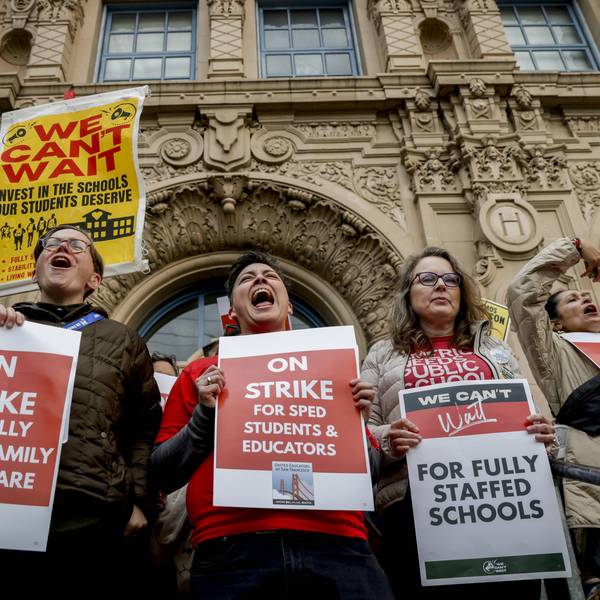The Chicago Teachers Union (CTU) on Monday voted overwhelmingly to authorize a strike if contract disputes are not resolved, paving the way for members' second mass walkout since 2012 as city officials threaten further cuts and layoffs.
"Chicago Teachers Union members do not want to strike, but we do demand that you listen to us," said CTU vice president Jesse Sharkey. "Do not cut our schools, do not lay off educators or balance the budget on our backs."
CTU's 24,752 members voted over the course of three days, with a 91 percent turnout. Overall, 88 percent voted in favor of authorizing a strike.
A strike can only take place after mediation between teachers and city officials, so it would not happen before March 2016, Sharkey told the Chicago Tribune on Monday.
His statement following the vote specifically addressed Chicago Public Schools chief executive Forrest Claypool as well as Mayor Rahm Emanuel, who faces a growing call for resignation from grassroots groups demanding racial, social, and economic justice.
"Rahm, Forrest Claypool--listen to what teachers and educators are trying to tell you: do not cut the schools anymore, do not make the layoffs that you have threatened; instead, respect educators and give us the tools we need to do our jobs," Sharkey said.
As CTU outlined in its statement following the vote, educators' demands are to:
- Improve the teaching and learning conditions by reducing standardized testing, eliminate time-sucking compliance paperwork, and restore professional respect and autonomy to teachers on matters like grades. These improvements cost nothing;
- Staff our schools at an adequate level. We deserve reasonable class sizes, instruction in art, music, science and technology, a library with a librarian, a nurse;
- Help our schools and our communities address the social crisis in large swaths of our city. While we do not expect the schools to fix homelessness, broken immigration policy, crisis-level unemployment, and racism, we must address the undeniable fact that these problems spill over into our schools and devastate the lives of our children. We have modest demands to address these problems--allow our counselors to counsel, approve restorative justice programs in targeted schools, help with translation and bilingual services.
The contracts reached during the 2012 strike, which saw Chicago public schools come to a halt for a full week before city officials met teachers' demands, expired in June. More recent negotiations stalled over disputes about salaries, teacher evaluations, and standardized testing, among other contentious issues. School administrators have threatened mass layoffs and pay cuts to address the system's shortfall, which is estimated to hit $1 billion next year.



